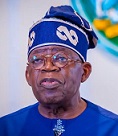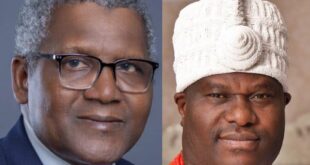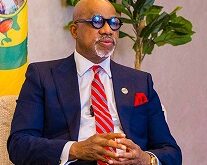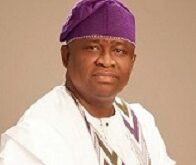Opinion:
BY ABU-SATAR HAMED
One cannot help but ask: Is there truly no constitutional provision, executive directive, or legal mechanism that empowers the Presidency – or any federal oversight body for that matter – to demand accountability from state governors regarding how they spend their monthly federal allocations and internally generated revenues (IGR)? Or is this just another aspect of Nigeria’s carefully choreographed political theatre, where the script is designed to confuse, not clarify?
It is deeply frustrating – if not outright insulting – that the same political elites who once weaponized state security to silence peaceful protesters are now telling the people to “go and question your governors.” How convenient. How audacious. How cruelly ironic.
Are Nigerians truly expected to walk up to governors who command the loyalty of local police, political thugs, and bureaucratic machinery, and demand a breakdown of financial expenditures – without fearing harassment, imprisonment, or even death? The very idea reeks of mockery. It’s akin to handing someone a matchstick in a fuel-soaked room and telling them to light a candle.
Let us be honest with ourselves: many of today’s politicians are not only detached from the reality of everyday Nigerians, they appear to deliberately exploit that distance. They operate as though the people are naïve, impressionable, and too divided or distracted to recognize manipulation when it stares them in the face.
It seems there are several ways the executive arm of government could have distributed the extra funds meant for governors, in a manner that would actually benefit people at the grassroots.
If the handful of powerful Nigerians – likely no more than a thousand – who were allegedly orchestrated the fuel subsidy fraud and deprived nearly 200 million citizens of its benefits cannot be brought to justice, then it suggests that our laws are only meant for the remaining 200 million ordinary Nigerians.
These individuals not only crippled the country’s socio-economic balance but also became instant billionaires at the expense of the masses.
Although all three tiers of government introduced various palliatives to cushion the impact of subsidy removal, the approach has proven ineffective. Rather than offering relief, it has created a system where Nigerians feel like slaves or displaced persons within their own country.
Now that the central government seems to recognize that the significantly increased monthly allocations to states are not effectively reaching the grassroots, the President should consider designing a national programme or project that will directly touch every corner of the country.
Methinks, while governors serve as custodians of federal allocations and control many resources, including land, the federal government still retains overriding authority. The President, through executive powers, can initiate direct delivery of democratic dividends to citizens across the nation.
To see a high-ranking political figure – one with a history of repressing civic dissent – now urging citizens to hold governors accountable is not just hypocrisy; it is a dangerous kind of political gaslighting. It places the burden of accountability on those least equipped to bear it, while absolving those who should lead the charge.
Bob Marley, the timeless prophet of resistance, once sang: “You can fool some people sometimes, but you can’t fool all the people all the time.” That line echoes louder now than ever before.
There is a deep undercurrent of awakening in Nigeria. The people are watching. They are questioning. They are connecting the dots. And while the path may still be rugged, the direction is clear: this nation will not remain trapped in this cycle of deceit and suppression forever.
From my observation, it seems Nigerian politicians are primarily driven by the desire to attain power, not necessarily to serve the electorate or improve the lives of the citizens.
Anyway, one thing is certain – Nigeria shall rise. Nigeria shall overcome. And perhaps sooner than many expect.
 Startrend International Magazine For Your Latest News And Entertainment Gists
Startrend International Magazine For Your Latest News And Entertainment Gists





